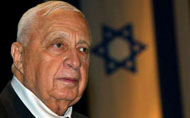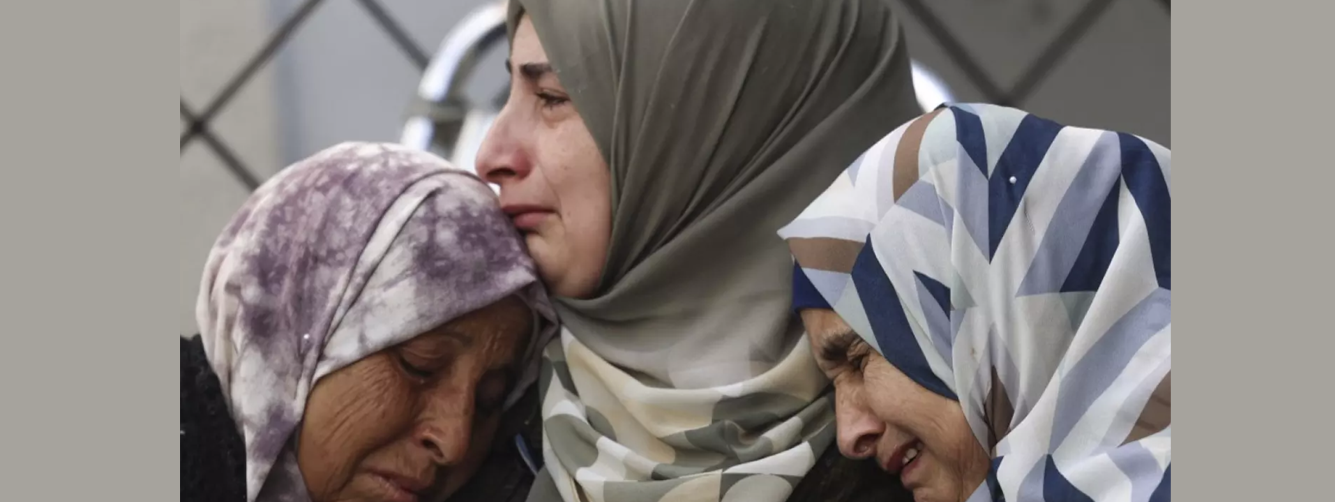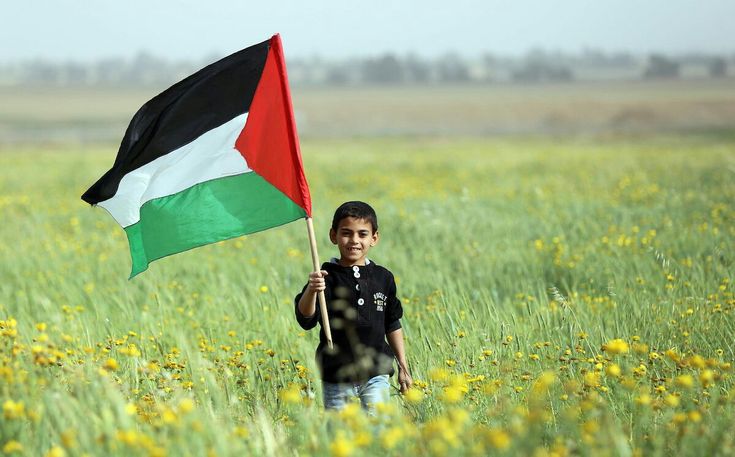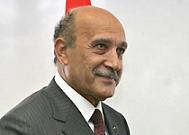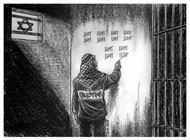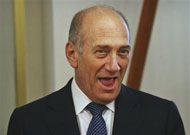Last week, the British-based Times newspaper reported that if elections for the next Israeli Prime Minister were imminent, two-thirds of Jewish Israelis would vote for current Prime Minister Olmert’s mentor and predecessor Ariel Sharon, regardless of his political stance.
Such a demonstration of staunch support and relentless, unwavering loyalty is astounding yet intriguing.
Presently, this ubiquitous titan of Israeli politics has been reduced to a state of immobility, relegated to the position of permanent resident at the Sheba Medical Center near Tel Aviv. The founder of the centralist Kadima party has remained in this solitary position since January 4, 2006 when he suffered a stroke.
While some believe that his recovery is possible, only a determined optimist would predict his return to the fray of Israeli politics. Sharon’s medical condition along with his age, 79, makes this ambitious goal surely beyond the realms of possibility.
Sharon’s supporters are no doubt aware of this fact but their continuous endorsement of him instead highlights something else – namely the lack of confidence, credibility and leadership in the current Israeli government under Olmert.
Former spokesperson Raanan Gissin claims that Sharon “delivered peace of mind to the Israelis”. Similarly, the public opinion is one of Sharon as a patriotic and powerful leader who fought for their freedom from the frontlines.
One therefore cannot help but muse over why the almost legendary name of “Ariel Sharon” is so influential in Israel, especially when one takes into consideration his abrasive military decisions as well as his aggressive political actions.
In the field, Sharon was a superior officer’s nemesis. The ambitious young man was never a silent voice that could be suppressed or an individual to strictly adhere to orders, being far from cooperative and highly unpredictable. These characteristics, along with his ardent passion for Israel, at the same time compelled people to hold him in high regard.
As can be seen from his actions at an early age, Sharon was far from sympathetic to the Arab cause, adopting more the policy set by the first Israeli Prime Minister Ben Gurion, who stressed that unless Israel “show the Arabs that there is a high price to pay for murdering Jews, we won’t survive”.
In the 1950s, Sharon was major of the infamous Unit 101 and later the commander of the 202nd Brigade. Both these divisions launched operations against Palestinian and Arab targets. In 1953, Sharon’s soldiers were responsible for killing 69 Palestinian civilians at Qibya and during the 1956 Suez War, Sharon disobeyed his orders by confronting the Egyptians east of Sinai’s Mitla pass. Due to his impulsive and provocative advance, 38 Israelis lost their lives.
Sharon managed to redeem himself at home in 1967 as the leader of the strongest division on the Sinai front and during the 1973 Yom Kippur War, where he was regarded as a hero for repelling the threat of the foreign aggressor when he manipulated the supply lines from the Suez Canal thus alienating the Egyptian forces. Although his actions were commended as militarily effective, the Egyptians did not surrender before the ceasefire. In addition, Sharon had once again discarded an official order and had demonstrated his reluctance to follow orders or work productively alongside his peers. Sharon was subsequently relieved of duty in 1974.
In the political sphere, Sharon was much of the same. He reveled in being vocal, provocative and intimidating, which was again the reason for his appeal. Israelis felt that they could trust in his strength to safeguard their fate.
Sharon remained a controversial figure in politics. Having used the creation of the Schlomtzion party as a medium with which to propel himself to the forefront of the Knesset, he embarked on a policy of settlement expansion in the West Bank and Gaza as Minister of Agriculture, famously urging Israelis to “move, run and grab as many Judean hilltops as they can to enlarge the Jewish settlements because everything we take now will stay ours…everything we don’t will go to them”.
As Defense Minister when the disastrous Sabra and Shatila massacre occurred in 1982, Sharon was the individual held with “personal responsibility” according to the Kahan Commission. Sharon had permitted the Lebanese Phalange militia to storm the refugee camps in order to clear out the PLO, who had falsely been accused of murdering the Phalange leader, Bashir Gemayel. Estimates record the death toll to be between 700 and 3,500.
After a period behind the scenes implementing settlement expansion and promoting Jewish immigration to Israel, Sharon latched onto Benjamin Netanyahu’s unpopularity and became the head of Likud in 1999.
Then, in a stunt that has been perceived as the catalyst for the second Intifada, Sharon stormed the Aqsa Mosque Compound with a heavy entourage. Despite the Mitchell report absolving this incident as the main reason for the outbreak of the Intifada, the Palestinians viewed this as an act of provocation and a huge insult. Sharon was proclaimed prime minister in 2001 and years of violence ensued.
President Bush referred to Sharon as a “man of peace” and one may be convinced by his willingness to sign up to the roadmap in 2003 as well as his evacuation of 21 settlements and 10,000 settlers from Gaza in 2005. However, Sharon never went about executing the stipulations of the roadmap and Dov Weisgass, a close confident and aide to Sharon, stated that the withdrawal from Gaza was simply a ploy to delay the peace process.
Further, Robert Fisk mentions that the appellation of “man of peace” is hardly apt for a man who voted against peace with Egypt in 1979 and Jordan in 1994; a man who voted against a withdrawal from Lebanon in 1985; opposed the Madrid peace conference in 1991; opposed the Oslo agreement in 1993 and the Hebron agreement in 1997; condemned Israel’s retreat from Lebanon in 2000 and a man who by 2002 had built 34 new Jewish colonies on Palestinian land.
Ariel Sharon was the mastermind behind the settlements, currently the major obstacle to a two state solution. He was impulsive, stubborn, brutal and uncooperative. As well as a “man of peace”, Sharon has also been labeled “the butcher of Beirut” and “the bulldozer”. With this noted, why is he honored with such a degree of praise? From his actions, Sharon surely cannot be seen to fulfill the conventional prerequisites for admiration? Raanan Gissin said that Sharon “took people to places that they’d otherwise not go”. The irony of this statement is that he may have taken them there but now they have passed the point of no return.
In evaluating reasons for his appeal, one must attempt to delve into the psychological mindset of his supporters and rationalize the inexplicable - a highly complex task. A possible explanation is that Sharon was the omnipresent figure while many of the current Israeli public was growing up. They are familiar with him and remember him as the immoveable rock who vehemently stood as the devoted paternalistic protector of their nation. Therefore, to his faithful, Sharon’s ruthless demeanor seems to have been nullified and superseded by his rigorous quest for the cause.
At a time when the Israeli/Palestinian conflict has returned to the global stage in the form of a new wave of peace meetings which aim to establish a two state solution by the end of 2008, the persistent loyalty to an incapacitated individual with such an extreme agenda is worrying and could prove highly damaging to peace. Having said this, what is the alternative? Olmert is devastatingly unpopular and polls show that the right wing Likud leader Benjamin Netanyahu is the overwhelming favorite to succeed him.
The status quo must change if there is to be any significant progress in the region and the Israeli public must adapt to the current political climate. It is time for a new role model to emerge from the mist. This individual should respect their predecessors but should not be afraid to break from the old tradition. It is imperative that they inspire, take responsibility, wholly represent their people and become a beacon of strength. Only when this leader has appeared, possessing his people’s trust, will peace prevail and a new era of improved relations between Israelis and Palestinians ensue.
However, this hope lives and dies with the people. If this breed of individual does not exist or if the people fail to realize the severity of their situation, choosing not to vie for peace, other avenues must be explored. The fear is that there are almost no other accessible routes left.




